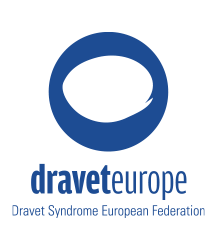

Survey: A single continent, major differences in treatment options
The unequal access to antiepileptic drugs across European countries is already a well-known fact. Still, since offering equal opportunities to all Dravet Syndrome patients is one of the goals of the Dravet Syndrome European Federation (DSEF), we wanted to understand how big the differences between countries were.
Therefore, we asked all of our members and also patients’ groups – representing in total 17 countries – what is the current local situation in terms of accessibility to adequate treatment, taking into consideration established as well as recently approved drugs altogether, both brand names and generic ones.
A number of 15 active compounds, vagus nerve stimulation (VNS) and ketogenic diet were included in the survey asking participants whether these treatment options were available in the respective countries and to which extent their costs were paid by the health insurance, hospitals, or families.
First finding is that the most recently approved medicines for Dravet Syndrome – Cannabidiol (Epidiolex, with marketing authorization in the European Union since 2019) and Fenfluramine (Fintepla, with marketing authorization in EU since 2021) – are only available in very few countries. Currently, Germany and France seem to be the only ones offering both treatment options to their patients, with Epidiolex also being available in Ireland, UK and Switzerland, through Germany.
“If only we were born in Germany…,” says a Romanian mom to a Dravet boy when she hears about the treatment options available outside their home country.
On the other side, Potassium bromide, which is quite an old drug, is missing in Belgium, Croatia, Poland, Portugal, Romania, Serbia, Sweden, and UK, although it is officially considered a therapeutic option for Dravet Syndrome.
Regarding the options to stop seizures, buccal midazolam is lacking in Croatia, The Netherlands, Poland, Portugal, Romania and Serbia. While in The Netherlands its non-availability could be considered a choice because patients have access to nasal midazolam, in the rest of the countries especially children in school age and adults are really missing a therapeutic option. Considered one of the most efficient options to stop seizures, nasal midazolam is available only in few European countries like Sweden, Belgium, The Netherlands, Germany, Spain, Switzerland and Ireland.
Other drugs that have been declared as not available such as: Lorazepam in France, Nitrazepam in France, Sweden, Portugal, Ireland, Spain, Serbia, Phenobarbital in France and Ireland, Diazepam rectal in Ireland.
The time elapsed between the grant of the marketing authorisation by the European Commission and the availability of the drug for patients varies a lot from country to country. Generally speaking, availability of drugs in countries where clinical trials have been run can take one or two years, but usually pharmaceutical companies make the drugs available sooner through Early Access Programmes.
However, in some Eastern countries, where the industry doesn’t run clinical trials, making the drug available to patients could take up to ten years or even more, as open answers to this survey show.
“While the data above are only preliminary findings of the questionnaire and a thorough analysis by our Scientific Advisory Board will follow, the aim is to formulate a strategy for eliminating inequalities to treatment options, hopefully with the support of the pharmaceutical industry. Because all Dravet patients deserve equal chances,” says Karin Jibaja, president of the Dravet Syndrome European Federation.
